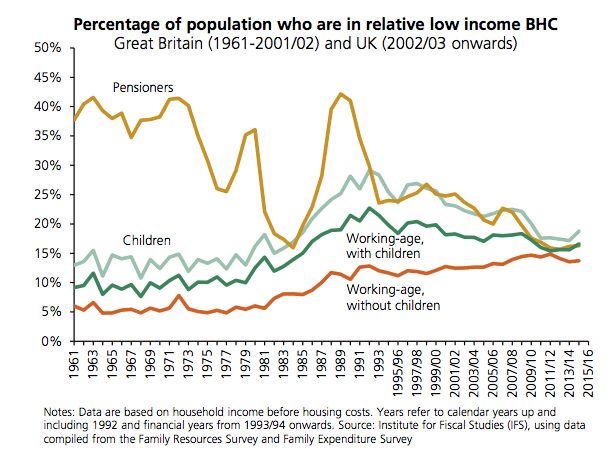Readers Question: How can we make sure children have equal opportunities?
Equal opportunity means that all young people have a fair chance to succeed in life. Equal opportunities mean that wherever you are born in society, you would still have a good chance to reach any job, profession or position in society. It should mean that children born in privileged sections of society shouldn’t have an unfair advantage, which enables them to gain better jobs and lifestyle. To some extent, a government can promote equal opportunities through providing universal access to education, training and healthcare.
Education
Education is the most important tool for promoting equal opportunities. Education qualifications are one of the major determinants for university acceptance and job offers. If people have equal opportunity to gain education and skills, this goes a long way to promoting equal opportunities in the labour market. If people have the opportunity to gain the relevant qualification, in theory, children can overcome any disadvantage they may have from their family background. To create equal opportunities in education is a big issue itself. In theory, if everyone in society is entitled to go to school and university, then that ensures a certain degree of equal opportunities. But, some schools (usually in prosperous ‘middle class’ areas) tend to be more successful than others. If a child goes to a ‘failing’ school, it will prove much harder to get the same qualifications as a student who goes to a school with better teaching, better resources and a positive atmosphere.
To overcome this problem of unequal education, the government could spend more money on failing schools, e.g. pay the best teachers a premium to teach in deprived areas with poorer results. However, money alone may not solve the problem. Schools in deprived areas may need more than extra money. Improved facilities themselves can’t change the prevailing attitude to academic studies in different areas.
University and positive discrimination
Some UK universities have argued that they need to offer different grades depending on a child’s school. For example, if a child is privately educated, this better quality schooling helps them to gain better qualifications. Therefore, some universities have argued to attract the best students, they should offer lower grades to students who went to school with a poor academic record. The universities may argue this is necessary to place students back on a level playing field.
This policy is difficult because it risks penalising students who work hard to get the top academic grades. It can also be difficult to evaluate which students had the ‘better’ education; for example, some state schools have a very good academic record and attract the most enthusiastic students/parents.
Parenting
As well as education, a key factor in determining the chances of children is the way they are brought up. For example, if a child is brought up in a broken family in an area of high unemployment and limited prospects, it is more unlikely that they will have the same chances as those brought up in much more affluent areas by parents who spend more time promoting the interests of their children. Parenting is a difficult factor to legislate for. Government policies cannot prevent parents from divorcing or dealing with issues like alcoholism or absent parents. One recent initiative was to make parents legally responsible for ensuring their child attended school. This was an attempt to place responsibility on parents to make sure their child valued school. However, even this cannot change the culture and mindset of parents who take less interest in the academic welfare of their children.
Economic Background
Another issue is whether children from poor backgrounds are more likely to stay poor. Areas of mass unemployment and limited prospects can make it difficult for children to gain improved academic and business prospects. Employers may even tacitly discriminate against people from certain postcodes (e.g. Moss side, Machester) Often we get areas of high local regional unemployment, focused on one particular area of a city. To provide equal opportunities for those born there may require government intervention to try and reduce regional inequality. This could involve moving public sector jobs to deprived areas or it could involve regional grants to help improve local infrastructure and facilities in deprived areas.
Again the difficulty is that money is not a panacea and there is no guarantee regional grants will solve regional inequality. However, in certain areas like south Wales and Northeast England, the economic prospects have improved since the mid-1980s and process of de-industrialisation. People have better prospects than previously.
Health care
Another issue of equal opportunities is health care, lifestyle and good health. If people have a poor diet and poor health care treatment, they may struggle to retain employment and have a lower quality of life. To some extent, universal health care provision can overcome this problem. However, it may need additional policies to promote good health; these policies could include: taxing unhealthy foods, subsidies for good food, free school meals, and education on improving health care.
Related

